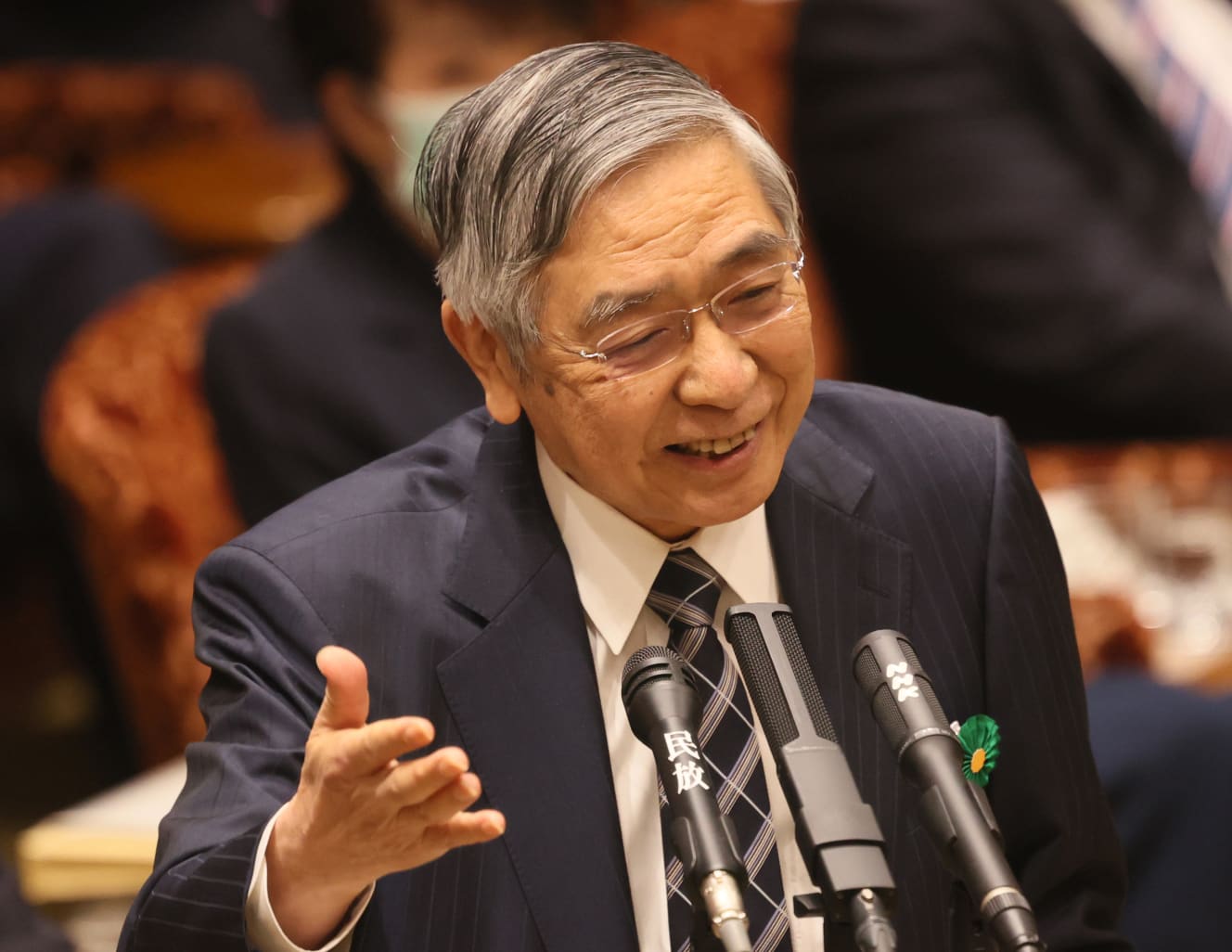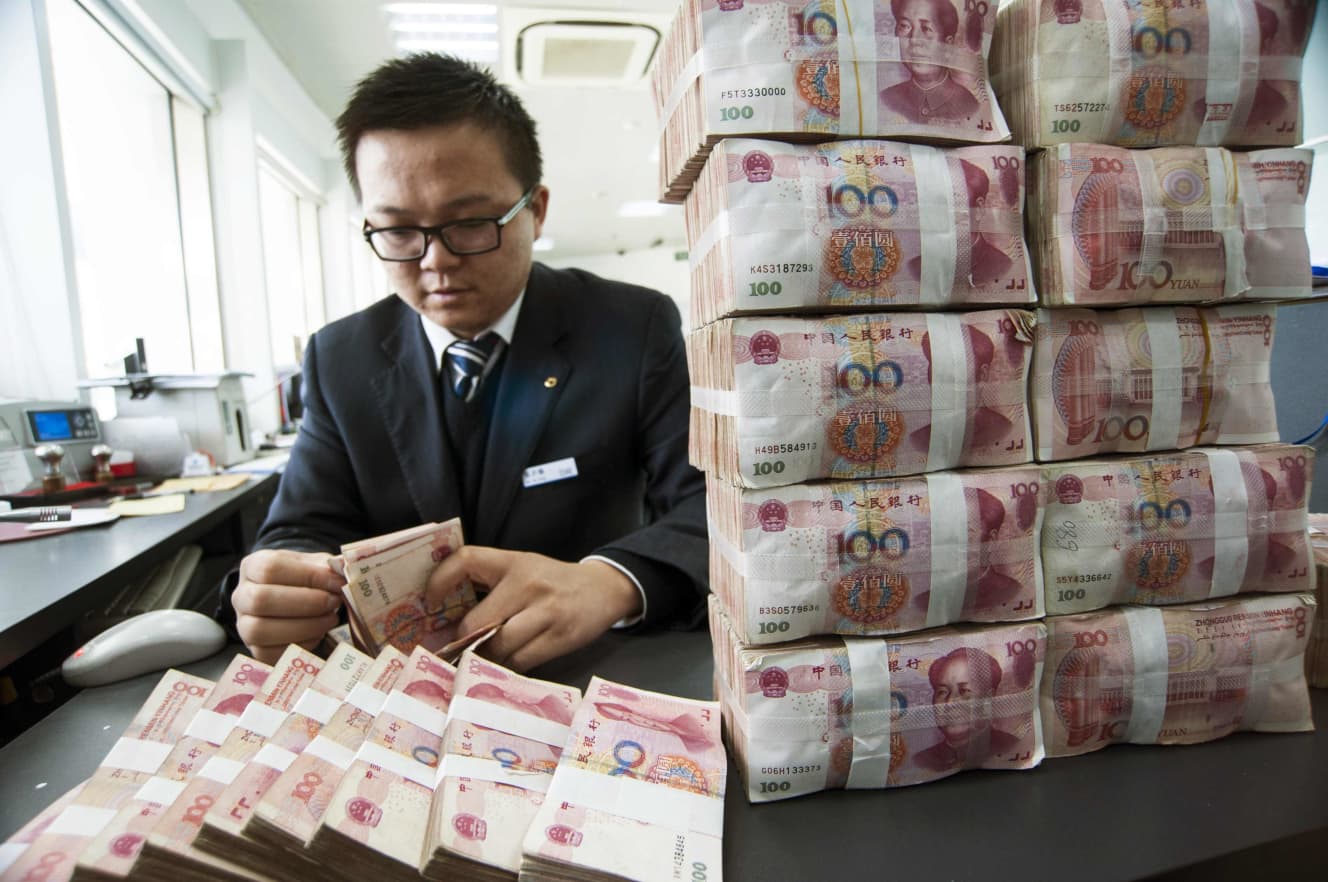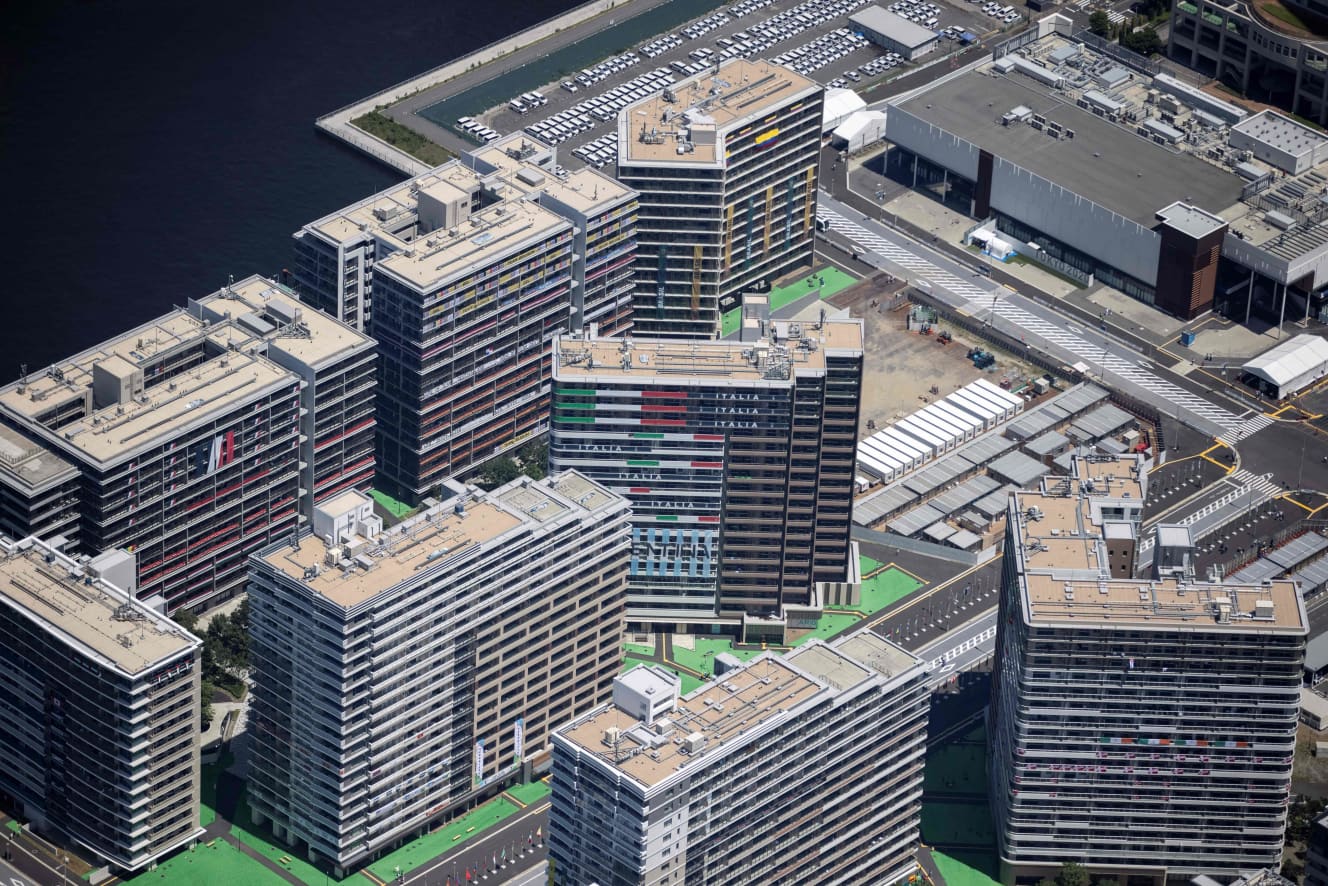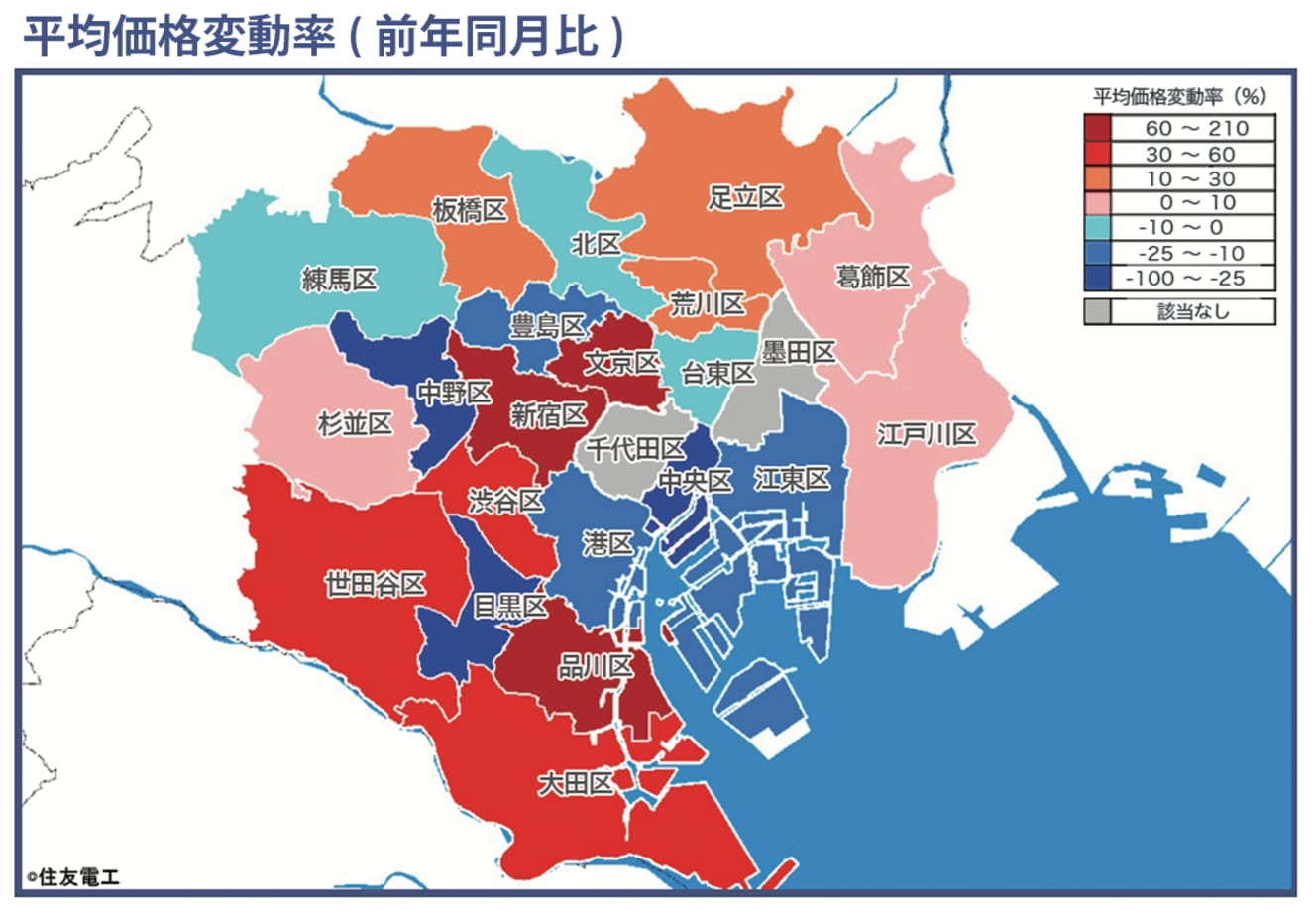Over 100 million yen one after another…! The underlying reason for the price explosion of condominiums in central Tokyo
The average price of a new property in Tokyo’s 23 wards exceeds 100 million yen!
The other day, a female editor who enjoys checking real estate information told me something unexpected.
The other day, I heard this unexpected story from a female editor who enjoys checking real estate information.
While the spread of the new coronavirus has stimulated “nest egg consumption” and the rapid penetration of online shopping, it has been frequently reported that stores are closing one after another in the city center and the number of shuttered shopping streets is increasing.
A number of companies have sold their offices or returned tenants due to remote work, and the Tokyo Olympics, which were expected to be a real estate boom, have been postponed and most of the facilities are reportedly in the red.
Why are condominiums soaring in spite of all this? We asked housing journalist Junji Sakaki, who is known for his blunt comments.
According to a statistical survey released monthly by the Real Estate Economic Institute, the average price of a new building in the 23 wards of Tokyo has exceeded 100 million yen, which has become a hot topic.
When the price of new construction rises, the price of used condominiums also rises.
However, since 2013, condominiums in central Tokyo and the bay area have continued to soar in price. The primary cause is the financial situation.”
Mr. Sakaki points out that the main cause of the “financial situation” is Bank of Japan Governor Haruhiko Kuroda.
Since the appointment of Mr. Haruhiko Kuroda as the governor of the Bank of Japan in April 2013, the Bank has consistently eased monetary policy, which has made it possible to borrow a lot of money. The screening standards for loans have also been loosened due to lower interest rates, and being able to borrow a lot of money makes it possible to buy expensive apartments.
In addition, as interest rates drop, real estate investment, for example, where you need a yield of 5-8% in the city center to earn rental income, used to be bought about 20 years ago, but now it is bought even at 3-5%.
Interest rates are very low, so even if the yield is 3.5%, for example, if you borrow at an interest rate of 0.1-0.2%, you will have more than 3% left in your pocket.
But who is buying all this?
I think it’s probably the wealthy in China who are buying all the money. I don’t have clear data, but it is a fact that the Chinese are buying a lot of real estate in Tokyo right now, and I think they think they can get it back when they come back as inbound tourists.
In fact, the Chinese are even buying hot spring inns and hotels in rural areas.
This is because, from their point of view, real estate in Tokyo is ridiculously cheap. For example, a single apartment in a prime location in Shanghai or Beijing can cost 300-500 million yen, while a single building just one stop away from the Yamanote Line in Tokyo can be bought for 300-500 million yen.
Moreover, in the case of China, the government owns all the land, so this 300-500 million yen is also “leasehold. In Japan, however, you can get full ownership and the yield is 3-5%, so why not buy it?

Tokyo real estate is a “good” investment for foreigners…
In other words, for people overseas, Tokyo real estate is “good” in terms of investment. Incidentally, Mr. Sakaki says that he receives many requests from Japanese building owners asking him to introduce them to Chinese people if they are willing to buy at high prices.
However, when I hear that, I feel that we are in a critical situation where buildings and condominiums in the city center are being bought up by the Chinese all over again. ……
No, no, it’s not that bad. According to data from Miki Shoji, which publishes monthly rents and office vacancy rates, the vacancy rate has been rising steadily since the start of Covid-19.
Moreover, the daytime population will not return to normal even after the declaration of the state of emergency is lifted, and the population going out for lunch and drinking at night will also decrease. This means that restaurants, convenience stores, and drugstores will all see a drop in sales, so the first thing that will happen is that more stores will close, and rents will also drop in the future. However, Tokyo is actually not a small city, so even if you say ‘the Chinese are buying all over the place,’ I don’t think it’s more than 1 or 2 percent.
The scale of the market is so large that it’s hard to grasp, but how can you say “they are buying all the time” when they don’t even account for 1-2%?
For example, Taiwanese bought a lot of Kabukicho in Shinjuku right after the war, so there may be many Taiwanese landowners, or foreigners may own a percentage of Akasaka.
But it’s not like the whole of Tokyo is going to be owned by the Chinese (laughs).
(laughs) Unlike in China, there is a cost of ownership, the so-called property tax, for real estate in Japan. Besides, Chinese people move very fast. They buy anything, even condominiums, but they don’t think about the cost involved, so if the return on their investment is not worth it, they sell it immediately.
Mr. Sakaki points out that there is also a difference in the way real estate is perceived.
Mr. Sakaki points out that there is a difference in the way Chinese people feel about real estate. In Shanghai, Beijing, Shenzhen, Hong Kong, etc., it is a game of buying and selling, and they feel that if they hold the property for three years, the price will double.
However, real estate in Tokyo does not rise that much, so it takes 8 to 9 years for a property in Akasaka or Aoyama to finally double in value. Moreover, it costs a lot of money to hold them, and they are not really attached to Tokyo in the first place. So, if the returns are not worth it, they will give it up soon, and I think there will come a time when people will say, ‘The Chinese are selling a lot of real estate.

When is the right time to buy or sell a condominium?
It is expected that only about 1-2% of Tokyo is being bought up, but why does this have such an impact on the price of condominiums?
Even if it’s only 1-2%, it’s a huge amount. There are reports that the number of people moving to the countryside for telework has increased, but in reality, the movement is very small. However, this is not the case at all. On the contrary, even in Tokyo, there is a slight increase.
There are also many Japanese investors who have gotten a taste of the lucrative business of buying new condominiums about a year and a half before they are built, selling them when the price rises, and using the proceeds to buy another property. Harumi Flag, for example, is a symbol of this.
However, I am very skeptical about whether the price will rise further in two to three years. But I am very skeptical that prices will rise further in two to three years. Then, I think this stupid monetary easing will end, and the interest rate on housing loans will gradually return to around 1 to 1.5%, not negative interest rates.
In addition, the extent to which the bursting of the real estate bubble in China will affect the Japanese economy is also a point to watch, he said.
So, when is the best time to buy a condominium?
If you want to buy, you should buy after Mr. Kuroda retires. In addition, if the shock of the bursting of the Chinese bubble occurs within this year, there is a possibility that you can buy a 100 million yen condominium for about 70 million yen if you wait for another two to three years, but I don’t know about that.
However, condominiums are basically bought to be lived in, and if you have to put up with the current inconvenience of living there for three years, I think it would be a good idea to buy it with the intention of buying three years of time, for example, buying it now for 100 million yen, with the feeling that it may be worth 70 million yen three years later. Of course, this is only for people with money, and if you are a young person in your twenties or thirties and can wait, I think it would be better not to buy now.
On the other hand, when is the best time to sell? Mr. Sakaki answered immediately.
If you want to sell, you should do it as soon as possible. China’s bubble has practically burst, and we don’t know when the Lehman Shock will hit.

Junji Sakaki is a housing journalist. Lecturer at Waseda University ES. Born in Kyoto Prefecture. Since the bubble economy of the late 1980s, he has been involved in the real estate industry for more than a quarter of a century, focusing on the sale of condominiums. He has been involved in the real estate industry for more than a quarter of a century, mainly in the condominium sales business, since the late 1980’s. In addition to holding seminars on home buying for the general public, he regularly contributes articles to newspapers and magazines, and explains the inner workings of the real estate industry on his blog and email newsletter.
His major publications include “Marginal Tower Condominiums” (Shueisha Shinsho), “Will Condominiums Make the Japanese Happy?” (Shueisha Shinsho), “The 2025 Tokyo Real Estate Crash” (East Shinsho), and “Welcome to Tokyo in 2050” (East Shinsho).


Reporting and writing by: Wakako Tago
Born in 1973. Worked at a publishing company and an advertising production company before becoming a freelance writer. In addition to interviewing actors and actresses for weekly and monthly magazines, she writes drama columns for a variety of media. JUMP 9 no Tobira ga Openitoki" (both published by Earl's Publishing).